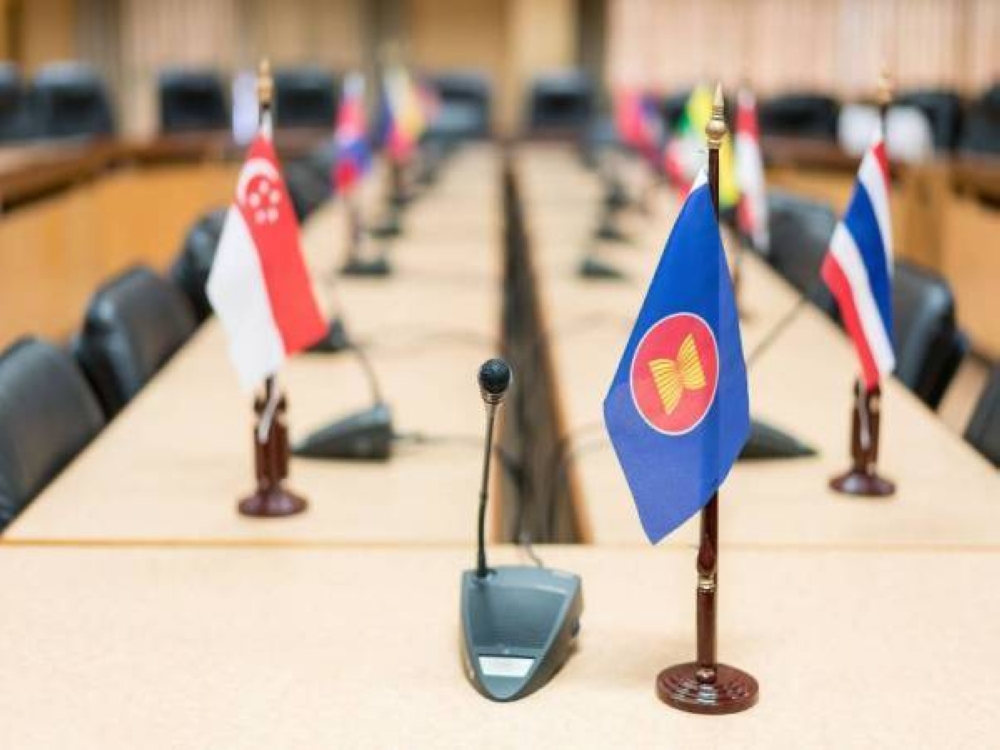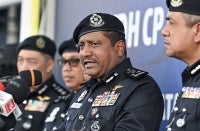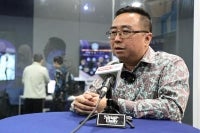Russia’s invasion of Ukraine - Asean feeling the heat
Nik Luqman Wan Zainoddin
While Russia’s intrusion of Ukraine is far from Southeast Asia, the region seems not immune from its fallout.
On the surface, the imminent fallout is only palpable to territories in close proximity to the conflict, but over time, the war drumbeat reverberates throughout other regions, and that Southeast Asia makes no exception.
At the outset, Asean has released a series of statements over the conflict.
However, international spectators invariably deem these statements as merely perfunctory and that of the “lowest common denominator”.
Compared to the rest of Asean member states, Singapore stood out by closing ranks with the West in imposing outright sanctions on Russia.
Meanwhile, at the multilateral fora, when the United Nations General Assembly resolution to condemn Russia for “aggression against Ukraine” was put forth, all Asean members voted in favour except Laos and Vietnam which chose to abstain.
Despite this development, of late, the heat is felt closer to the region.
The chief reason is indeed due to the recent remarks by the United States (US) President Joe Biden that sent shock waves across Asean capitals.
Biden suggested that Russia should be banned from the Group of 20 or famously known as G20, the economic forum of industrialised and developing countries.
But key Asean countries such as Indonesia, Thailand, and Cambodia are set to host summits later in November with Russia as a key member. The meetings are G20, Asia Pacific Economic Cooperation (APEC), and East Asia Summit.
Indeed, the spillover effect cannot be discounted.
As a matter of fact, the US and other major countries once banished Russia from the Group of 8 (G8) in 2014, in response against its annexation of Crimea, making the exclusive group of leading industrialised nations left to seven, hence G7.
Should the conflict still rages in Ukraine’s territory, it is likely that the US and other major countries would boycott the meetings if Russia still attends.
Already, the delegates of the US, UK, and Canada had walked out on Russian delegates in the G20 finance officials meeting in Washington last month.
But as the pressure underway, Asean seems determined to project the bloc’s neutrality position.
In hindsight, the neutrality principle is closely aligned to the bloc’s Zone of Peace, Freedom and Neutrality (Zopfan), a declaration made in 1971.
This declaration was born out against the backdrop of the intense Cold War and growing concerns of instability in the Southeast Asia region.
The adoption of Zopfan envisages the region free from the interference of extra-regional countries and aims to maintain peaceful coexistence and to preserve the independence and sovereignty of member states.
Then, the US, Soviet Union, and China clashed and at the same time actively sought an enhanced presence in the region.
This led to a protracted period of external interference and security competition.
Indeed, Zopfan is a manifestation on the part of Asean in seeking regional autonomy and explicit guarantees from the US, Soviet Union, and China that they would abstain from involving this region in its rivalry.
And the 2003 Bali Concord II Declaration further reinforces Zopfan “to continue to play a pivotal role in the area of confidence-building measures, preventive diplomacy and the approaches to conflict resolution”.
Asean also continues to be in the driving seat in shaping the regional framework through various of Asean-led mechanisms such as East Asia Summit, Asean Regional Forum, and Asean+3 meetings which include both major and middle powers from within and outside the region.
After all, Asean is often seen as the fulcrum for great powers to meet and consult.
Guided by Asean’s customs of musyawarah and muafakat (consultation and consensus), Asean acts as the enabler for great powers to return to the table of discussion.
Partly this explains Indonesia's recent move to invite both Ukrainian President Volodymyr Zelensky and Russian leader Vladimir Putin to attend the G20 summit slated to be held in Bali later this year.
By doing so, Indonesia as the G20 host this year has managed to absorb pressure from the West in excluding Russia following its invasion of Ukraine.
At the same time, Indonesia is able to carry the barometer of Asean value, which is to remain neutral amidst the ongoing conflict in Ukraine and essentially provides a potential platform for direct negotiations between the Russian and Ukrainian leaders.
More importantly, this would limit any distraction from the forum’s priority agenda items.
Supposed this circumstance works out as it is intended, essentially allowing the multilateral meeting to run smoothly, in that case, it is also applicable for Thailand and Cambodia to follow suit as Thailand currently chairs the APEC forum while Cambodia chairs the East Asia Summit, where Russia has a seat at both multilateral platforms.
To be sure, this is not the first time Asean faces pressure from key extra-regional partners. In recent years, Asean countries are more often than not in a position that intersects in between the US-China rivalry.
With China’s increased political and economic clout, the US sought to fortify and expand burgeoning ties with Southeast Asia, fearing the latter would fall into China’s orbit of influence.
In response, Asean opts for a strategy of public hedging or maintaining equidistance between the two major powers to keep its options remain open.
As a matter of fact, the bloc participated in the massively funded Belt and Road Initiative (BRI) of China, and concurrently adopting the Indo-Pacific concept, anchored by the US.
Indeed, this is a political landmine that Asean has to continue to manage, failing which the path towards maintaining the region’s neutrality may end up in a cloud of smoke.
The US and the West are all watching from on high, and if the negotiation between Ukraine and Russia is progressing well, the better.
While the conflict is in a faraway land, admittedly, it is within Asean and by extension, the world’s best interest that Ukraine’s crisis could be resolved.
Nik Luqman Wan Zainoddin is an analyst and freelance writer focused on Southeast Asia. Previously he was attached to the IKMAS UKM-Nippon Foundation as a research fellow. He tweets at @NLuqman.The views expressed in this article are the author's own and do not necessarily reflect those of Sinar Daily.
Download Sinar Daily application.Click Here!














